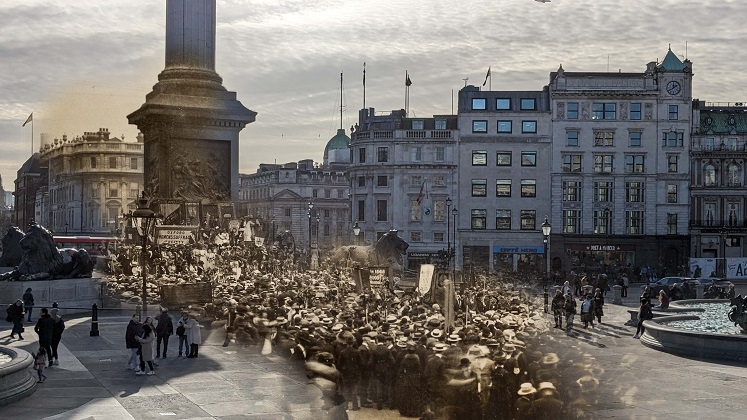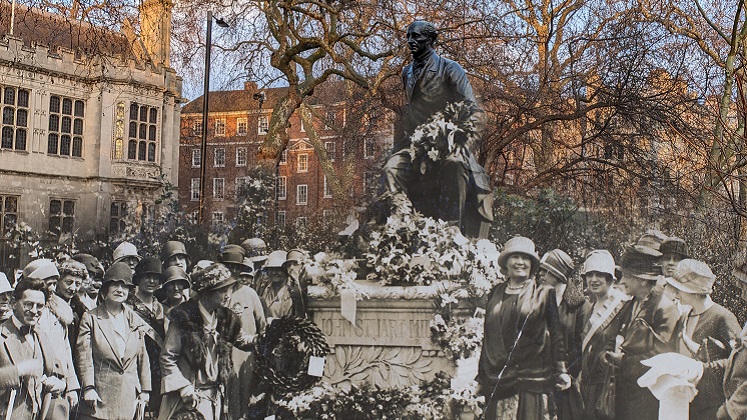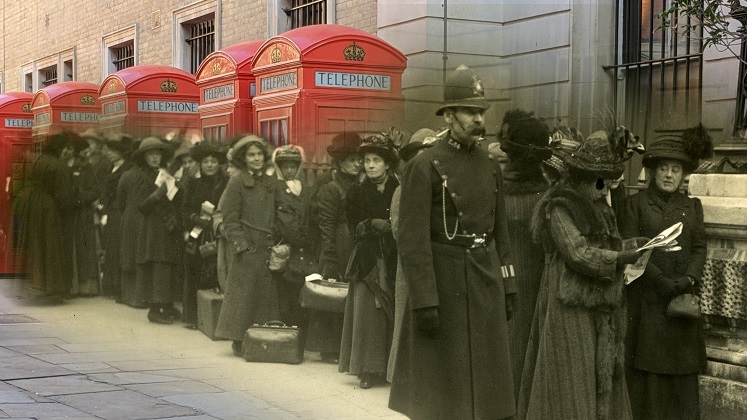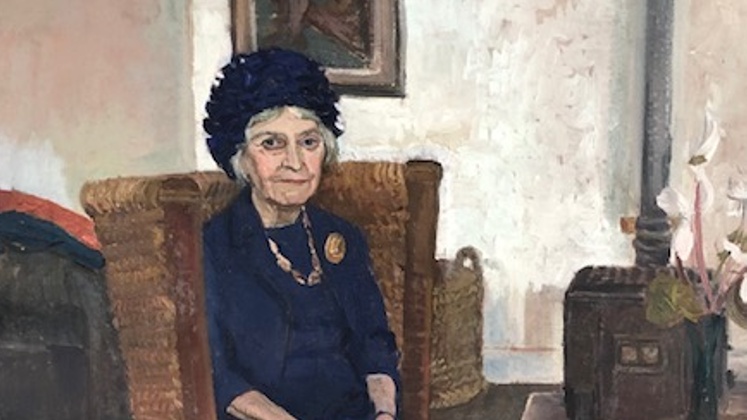Over 100 women were arrested and many were assaulted in Parliament Square on Friday 28 November 1910 – known as Black Friday.
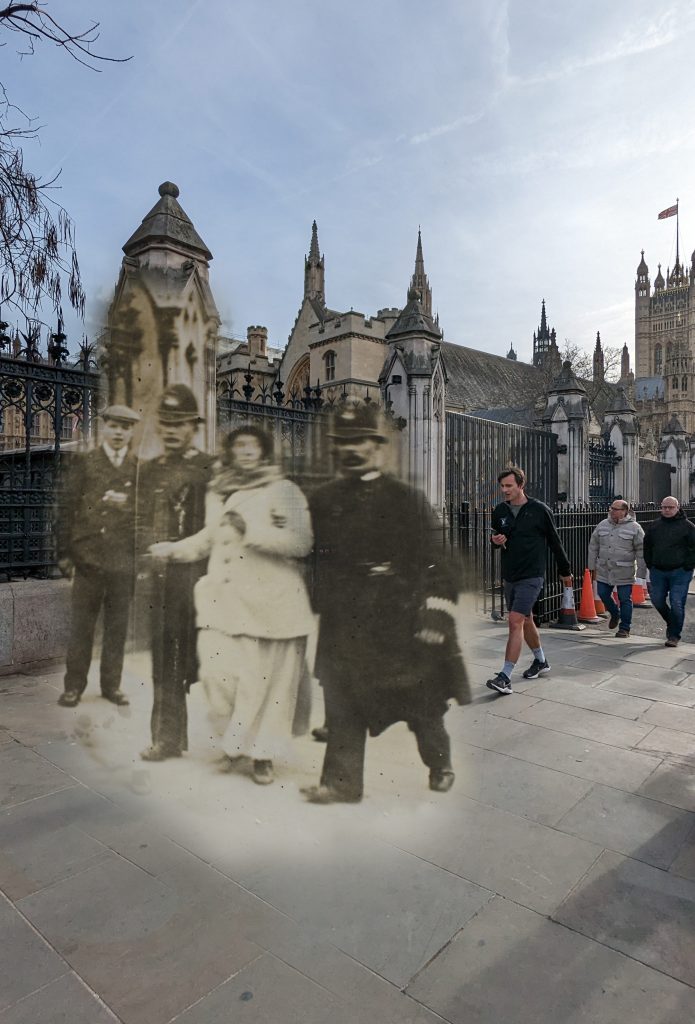
Once again has the Women’s Social and Political Union demonstrated all that it is prepared to do and suffer in the Cause of freedom.
Jus Suffragi, December 1910
This image shows the arrest of a woman during a protest on Friday 18 November 1910, now known as Black Friday. The protest was a result of frustration with the reigning Liberal Party, who had called an unexpected election to improve the mandate for their People’s Budget. This threatened the progression of The Conciliation Bill which was to give a small number of women the vote.
There was a great storm-burst. All the clouds that had been gathering for weeks suddenly broke, and the downpour was terrific… There was not one of us who would not have gone to our death at that moment, had Christabel so willed it.
Annie Kenney
In response to the election news, the WSPU asked Prime Minister Henry Asquith to meet with a deputation of 300 women, to be presented in groups of twelve, on Friday 18 November. When the first group of twelve women, which included Emmeline Pankhurst, Elizabeth Garret Anderson and Princess Sophia Duleep Singh, were told that Asquith would not see them, the remaining deputations continued to arrive at Parliament Square to demand entry to the Parliament. Arriving in groups under 13 meant that the actions of the deputations were not arrestable in and of themselves. Instead the police meted out jeers and violence, often throwing women onto unfriendly male onlookers.
Never in all the attempts which we have made to carry our deputation to the Prime Minister have I seen so much bravery on the part of the women and so much violent brutality on the part of the policemen in uniform and some in plain clothes.
Sylvia Pankhurst, Votes for Women, 25 November 1910
In addition to physical injury, many women also experienced sexual assault, with some being forced down backstreets by the police. Despite the police response being focused on violence and not arrest, 114 women were still arrested that day, often on charges of assault. The names of some of those arrested included:
Mrs Edith Begbie, a worker, widow and mother of four children from Wimbledon.
Miss Sarah Carwin, a nurse who had been imprisoned twice before for suffragette activity
Miss E Fricker, a factory and office worker
Miss Edith Mercy Andrews, a daughter of a newsagent who had first ordered the Votes for Women newspaper out of curiosity.


